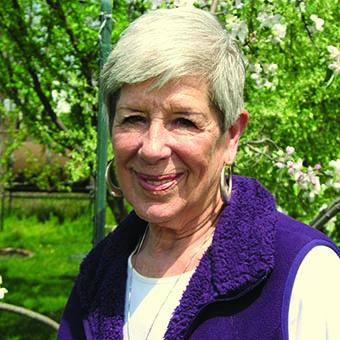
An Iconic Hunger Warrior Turns the Page

Steveanna Wynn is a legend in the Delaware Valley’s hunger relief community. For more than 30 years, she served as executive director of the Share Food Program, which distributes millions of pounds of food to more than 500 pantries year-round. And so, when she announced her retirement in late November of last year, many were shocked.
Wynn has been the region’s go-to for everything from distributing U.S. Department of Agriculture commodity foods to managing Pennsylvania’s hunger-relief earmarks, to securing and delivering large donations to communities in need.
She is both a local icon and an import. She was raised in Narrows, VA, and spent many of her formative years in Princeton, WV, with her paternal grandparents. It was in these small, poor, rural communities that she began to find her calling: making sure people do not go hungry.
Wynn believes that fighting hunger is in her DNA. Decades before the U.S. would establish a National School Lunch Act, her grandmother saw children in the town’s one-room schoolhouse struggling to learn on empty stomachs. She convinced her community to build a lunchroom, then organized the women in town to bring warm lunches to the children each day.
“My grandmother was a community organizer,” Wynn said. “She made sure that those children had healthy lunches.”
Though Wynn is proud of the work she has done to alleviate hunger in Southeastern Pennsylvania, she stresses that hunger is just a symptom of something bigger: lack of financial self-sufficiency.
“People talk about food, health, housing… They talk about these things in silos, like they are the issues. But the real issue is that people need to make enough money to survive,” she said.
“Imagine if your phone rings today and you find out that you no longer have a job — no severance, no health insurance, no pay. How long before you need to use a food cupboard? How long before you need to apply for SNAP?” she continued, referencing the Supplemental Nutrition Assistance Program, formerly known as food stamps.
Another challenge is widening income gaps, which lead to communities where everyone has similar resources — a pattern that has a disproportionately negative impact on lower-income families.
“Let’s say that I have a problem, like a problem with my car, and I need to borrow money,” she said. “If I am completely surrounded by people with similar resources, who can help me? The truth is that being poor is hard.”
While the issues contributing to hunger and food insecurity are complex, Wynn stressed that anyone who wants to make a difference just needs to act.
“Some people may want to physically help, like harvest food or organize supplies,” she said. “Others may want to be inside, helping with data entry or writing articles for a newsletter. Whatever your interest is, there is a volunteer job for you in the hunger-relief network.”
Wynn is going to Nashville, TN, to help her son and be with her grandchildren. Even so, saying goodbye to Philadelphia is bittersweet. “There are some amazing people in this area. They have changed me and changed my life for the better,” she said, her voice cracking a little.
Still, she is confident she will find ways to help people in her new community.
“I just need to find my people,” she said. “I’m sure I will connect with some nonprofits. I just have to be careful to try not to own too much when I do!”
